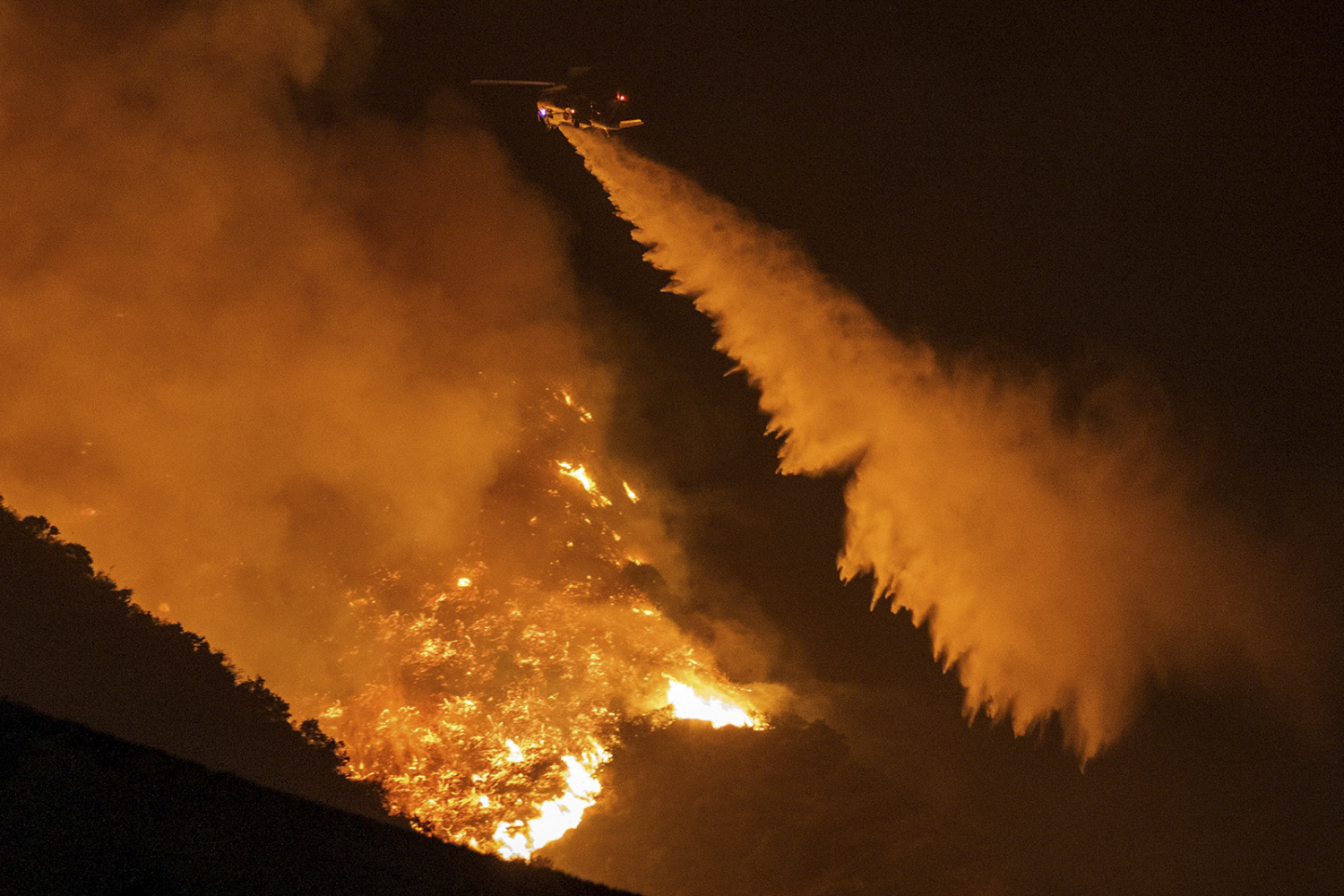State ownership of Pacific Gas and Electric could fix major issues

The Pacific Gas and Electric Company has a history of negligence that has impacted residents during times of disaster. A switch to public ownership would increase accountability. (Jintak Han/Daily Bruin senior staff)

By Navdeep Bal
Feb. 24, 2020 9:51 p.m.
The Pacific Gas and Electric Company has a monopoly on California’s monthly energy bills.
But greed and private profit motives should be reserved for board games – not the lives of 16 million people.
PG&E has provided power to California for 115 years, and the business now covers over two-thirds of the state. But after causing hundreds of fires, widespread blackouts and numerous deaths because of inadequate maintenance, PG&E has declared bankruptcy for the second time.
In early February, state Sen. Scott Wiener proposed legislation for the state to take over the operations of PG&E. The plan included a five-year transition period as the utility company shifted from privately to publicly owned. Gov. Gavin Newsom threatened public takeover around the same time, but has not provided a clear proposal. Newsom has also received over $200,000 in contributions from PG&E, but has said this will not affect his decision.
And quick action is needed – PG&E has been responsible for more than 1,500 fires in just six years, causing millions in property damage and acres of destroyed land.
The causes of these disasters have often been due to negligence, lack of equipment maintenance and prioritization of profit. Inaction has caused enough death and destruction, and the state cannot afford to continue this legacy – it must step in. There is a long battle ahead and much more debate about California’s future is required, but the current system cannot go on any longer.
This is not a new idea.
As long as PG&E has existed, cities have tried to gain public control. Just last year, San Francisco offered to buy the utility company’s infrastructure for its city at an offer of $2.5 billion, but PG&E vehemently declined.
The road to public ownership is a long but necessary one.
The deadliest wildfire in California’s history, the 2018 Camp Fire in Paradise, which killed 85 people and left tens of thousands homeless, was caused by faulty power lines that PG&E knew about months beforehand.
Asailah Brown, a fourth-year biology student from Marysville, California, which is in the same county as Paradise, said she knew many people who lost everything in the fire – their homes, possessions and businesses.
“A girl in my softball team, her family had reached out to all of us who had played softball with her to see if we had any pictures that we were able to give her because they basically lost everything,” Brown said.
And PG&E’s shoddy solutions don’t make up for its lack of long-term safety maintenance.
Just last year, in an effort to prevent wildfires, PG&E caused widespread blackouts across Northern California, which left millions without power. Many people were not given proper warning, which was especially dangerous for the sick and elderly who relied on power for their medical equipment. And because of its slow response, these blackouts are projected to continue for the next decade as it finally updates its infrastructure.
Sean Hecht, an Evan Frankel Professor of Policy and Practice at the UCLA School of Law, said both a public and private utility company in California would have to deal with the same problems, but the differences lie within effectiveness, funding and accountability.
“It’s a private company with a profit motive. They don’t typically have the kind of transparency that you might want, so there are things that happen that you can’t learn as much about as you can with a public agency,” Hecht said. “For some utilities, including PG&E, there have been histories of falsification of different types of reports in order to not have to take actions that are better for the public.”
Natural disasters don’t differentiate between private and public companies. But a transition of power would allow the state to learn from PG&E’s mistakes, without a profit motive in the way.
Furthermore, a state-sanctioned utility company gives a unique opportunity for California to work with its environmental agencies to provide cleaner, more renewable energy.
Kelli Allen, a second-year geography/environmental studies and political science student, said her family in Auburn, California, was affected by the blackouts, but she’s not sure whether the state will do better than PG&E when it comes to renewable energy.
“I don’t know if California taking over PG&E would just be subsidizing more exploitation of resources that we don’t really have, versus the state subsidizing a company that’s going down, as well as pushing it in a better direction,” Allen said.
However, not everyone agrees that the state ownership will fix long-standing issues with oversight.
A very probable problem with state ownership is that limited government budgets and resources, as well as bureaucracy, could quickly degrade the efficiency and quality of an already deteriorating infrastructure. Beyond logistical concerns, PG&E union employees have protested the proposed bill, fearing the loss of jobs, pension and benefits.
But Wiener’s office has assured that the plan would employ almost all current employees and would allow them to retain the same benefits.
And public ownerships have worked in the past. For example, Sacramento Municipal Utility District has largely avoided wildfires and blackouts when it separated itself from PG&E.
Hopefully, the lack of private greed and pressure from constituents will keep a future state-owned utility in line.
If California were to take over PG&E, oversight and accountability must remain its top priority. Just as the government and investors have tried to hold PG&E accountable, a state-sanctioned approach must remain committed to doing better.
PG&E has held California energy hostage for long enough.
And it’s time the state stops giving it “get out of jail free” cards.

